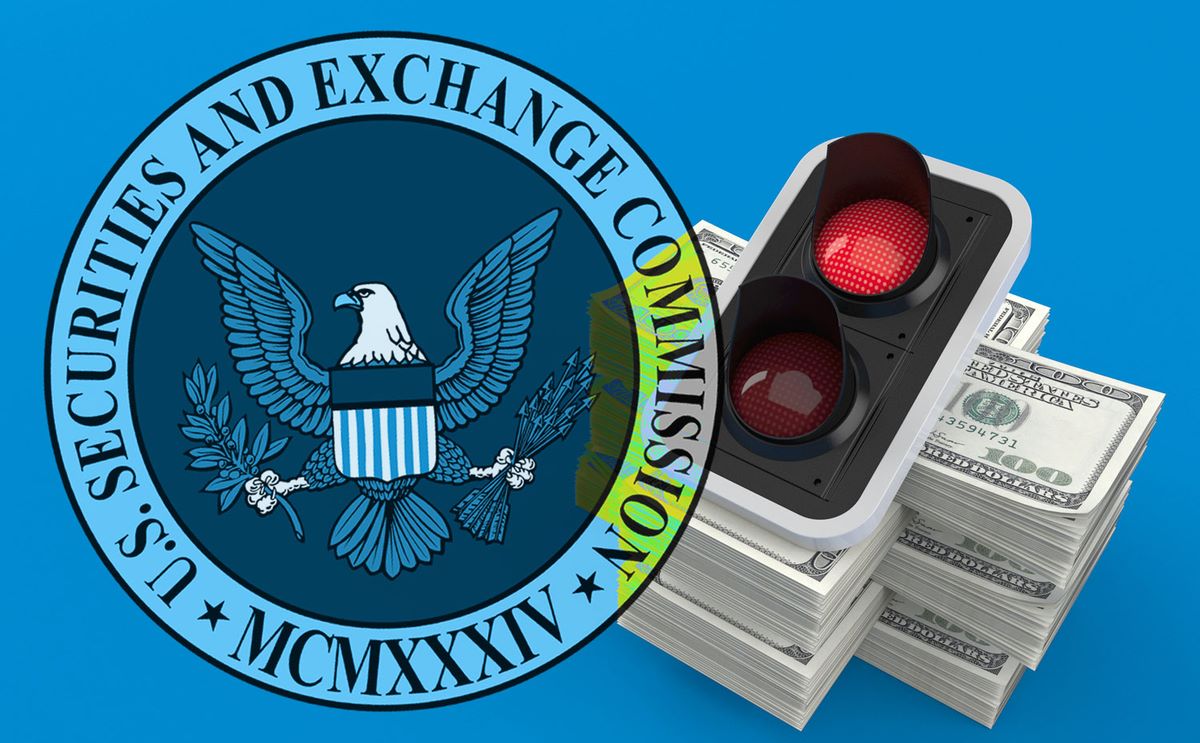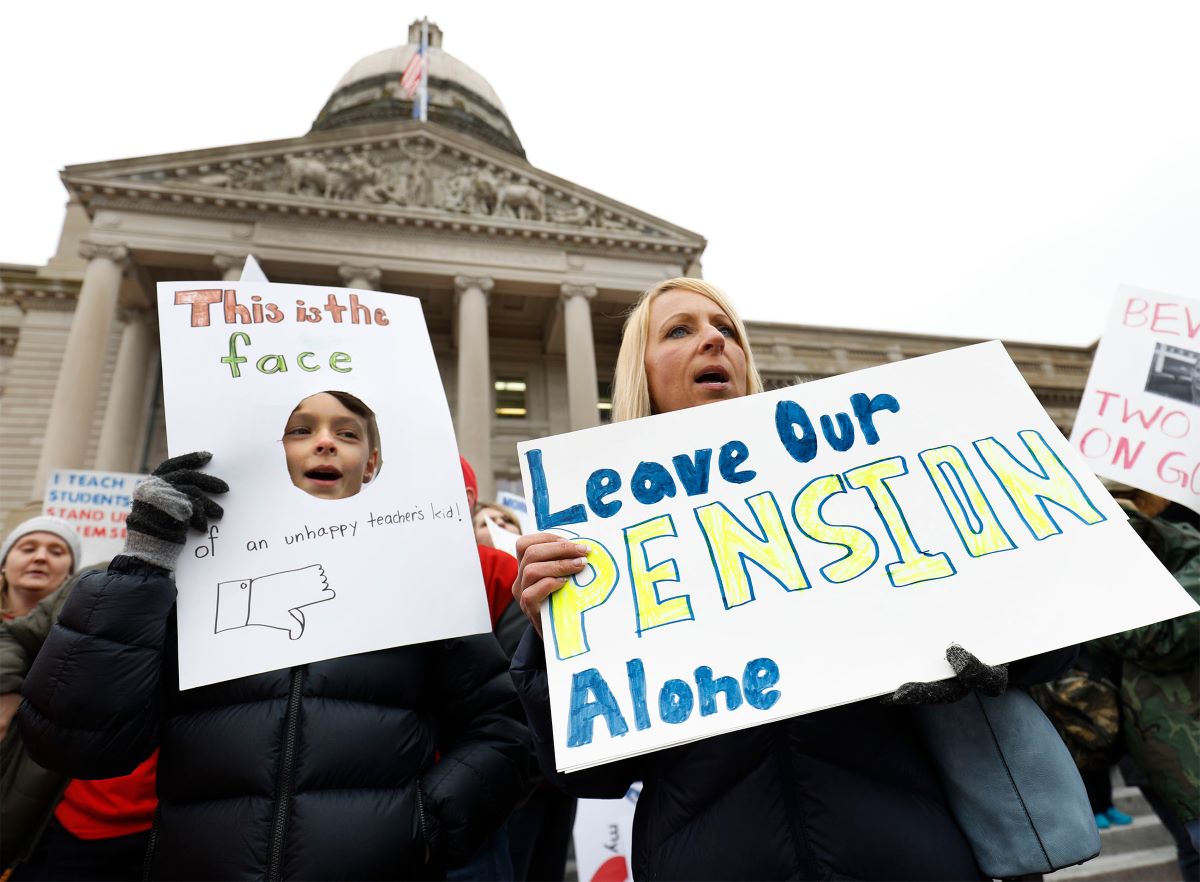

Finance
Why Are Pension Funds Considered Bad?
Published: January 23, 2024
Explore the reasons why pension funds are viewed unfavorably in the world of finance. Learn about the potential drawbacks and risks associated with pension fund investments.
(Many of the links in this article redirect to a specific reviewed product. Your purchase of these products through affiliate links helps to generate commission for LiveWell, at no extra cost. Learn more)
Table of Contents
Introduction
Understanding the Controversy Surrounding Pension Funds
Pension funds, designed to provide financial security for individuals in their retirement years, have long been a topic of contention. While these funds are intended to serve as a safety net for retirees, there are several reasons why they have garnered a reputation for being less than ideal. It's crucial to delve into the complexities of pension funds to comprehend why they are often viewed unfavorably.
Pension funds are established by employers to ensure that employees have a source of income after they retire. These funds are typically funded by contributions from both the employer and the employee, with the goal of generating returns on investment to secure the retirees' financial well-being. However, despite these noble intentions, pension funds face numerous challenges that have led to their tarnished reputation.
In the following sections, we will explore the various factors contributing to the negative perception of pension funds. From lack of transparency and high fees to underfunding, political interference, and mismanagement, each aspect sheds light on the complexities and controversies surrounding pension funds. By examining these issues, we can gain a comprehensive understanding of why pension funds are often considered less than ideal and the potential implications for retirees.
Lack of Transparency
One of the primary concerns surrounding pension funds is the lack of transparency in their operations. This opacity makes it challenging for employees and retirees to fully comprehend how their funds are being managed and whether their best interests are being prioritized. Without clear visibility into the inner workings of pension funds, individuals may feel apprehensive about the security of their retirement savings.
Transparency is essential for building trust and ensuring accountability within pension fund management. When stakeholders, including employees and retirees, are unable to access comprehensive information about the fund’s investments, performance, and fees, it creates a sense of unease and raises questions about potential mismanagement or conflicts of interest.
Furthermore, the complexity of financial instruments and investment strategies utilized by pension funds can contribute to the lack of transparency. Oftentimes, these funds engage in intricate investment practices that may be challenging for the average individual to decipher, further exacerbating the opacity surrounding their operations.
Addressing the issue of transparency is crucial for instilling confidence in pension funds and safeguarding the financial well-being of retirees. By promoting greater openness and providing clear, accessible disclosures regarding investment decisions, fees, and overall performance, pension funds can work towards rebuilding trust and demonstrating their commitment to serving the best interests of their beneficiaries.
High Fees
Another significant factor contributing to the negative perception of pension funds is the issue of high fees. While these funds are intended to help individuals save for retirement, the impact of exorbitant fees on the overall returns can be detrimental, potentially eroding a substantial portion of the accumulated savings over time.
High fees within pension funds can stem from various sources, including management fees, administrative expenses, and investment-related costs. These fees, although seemingly small on an individual basis, can accumulate into substantial amounts over the long term, significantly diminishing the retirement nest egg of beneficiaries.
Moreover, the lack of transparency regarding fee structures within pension funds exacerbates the concerns surrounding this issue. Without a clear understanding of the fees being charged and their impact on the fund’s performance, employees and retirees may feel disempowered and skeptical about the value provided by the fund managers.
Addressing the challenge of high fees necessitates a concerted effort to promote fee transparency and explore cost-effective investment options. By minimizing unnecessary expenses and adopting a more transparent fee structure, pension funds can enhance the overall value proposition for their beneficiaries, ensuring that a larger portion of their contributions goes towards securing their retirement.
Underfunding
Underfunding is a critical issue that plagues many pension funds, posing a significant threat to the financial security of retirees. When a pension fund is deemed underfunded, it means that the assets within the fund are insufficient to cover the future pension obligations owed to retirees. This shortfall can arise due to various factors, including inadequate contributions, poor investment performance, or changing actuarial assumptions.
Underfunding can have far-reaching implications, potentially leading to reduced pension benefits for retirees or placing a strain on the financial resources of the sponsoring employers. The prospect of underfunding can instill anxiety and uncertainty among employees and retirees, who rely on these funds as a cornerstone of their retirement planning.
Addressing underfunding requires proactive measures to bolster the financial health of pension funds. This may involve reassessing contribution levels, implementing more robust investment strategies, or revising actuarial assumptions to more accurately reflect future obligations. Additionally, fostering open communication and transparency about the steps being taken to rectify underfunding can help rebuild trust and confidence among stakeholders.
By confronting the challenge of underfunding head-on and implementing prudent financial management practices, pension funds can strive to fulfill their core purpose of providing reliable and sustainable retirement benefits to the individuals who have contributed to them throughout their careers.
Political Interference
Political interference represents a significant concern within the realm of pension funds, potentially undermining their ability to operate independently and in the best interests of their beneficiaries. When political agendas and interventions influence the decision-making processes and investment strategies of pension funds, it can introduce a host of risks and conflicts that jeopardize the long-term financial security of retirees.
One of the primary issues stemming from political interference is the potential prioritization of short-term political objectives over the prudent, long-term management of pension assets. This can lead to investments being influenced by political expediency rather than sound financial considerations, ultimately impacting the fund’s performance and stability.
Moreover, political interference may result in the imposition of regulatory changes or mandates that disrupt the autonomy of pension fund management, creating uncertainty and impeding the ability to pursue optimal investment opportunities. Such disruptions can erode confidence in the predictability and stability of pension funds, deterring potential contributors and exacerbating existing concerns among current beneficiaries.
Addressing the challenge of political interference necessitates the establishment of robust governance structures and safeguards to insulate pension funds from undue political pressures. Clear delineation of responsibilities, adherence to fiduciary duties, and insulation from partisan influences are essential in preserving the integrity and efficacy of pension fund operations.
By mitigating the risks associated with political interference and upholding the autonomy of pension fund management, stakeholders can work towards ensuring that these funds remain steadfast in their commitment to safeguarding the retirement savings and financial well-being of their beneficiaries.
Mismanagement
Mismanagement poses a significant threat to the stability and effectiveness of pension funds, potentially compromising the financial security of retirees. When pension funds are subject to mismanagement, it can manifest in various forms, including imprudent investment decisions, inadequate risk management, and lapses in governance and oversight.
One of the critical implications of mismanagement is the erosion of the fund’s assets, stemming from poor investment choices, excessive risk-taking, or failure to adapt to changing market conditions. Such missteps can lead to diminished returns and, in the worst cases, jeopardize the fund’s ability to meet its long-term obligations to retirees.
Furthermore, mismanagement can erode trust and confidence among employees and retirees, who rely on pension funds to prudently steward their retirement savings. Instances of mismanagement can breed skepticism and apprehension, potentially leading to a loss of faith in the fund’s ability to fulfill its core purpose.
Addressing the challenge of mismanagement necessitates a multifaceted approach, encompassing robust governance mechanisms, diligent risk management practices, and a commitment to upholding fiduciary responsibilities. By promoting transparency, accountability, and adherence to best practices in investment and fund management, pension funds can mitigate the risks associated with mismanagement and bolster the confidence of their stakeholders.
Through diligent oversight and a steadfast commitment to prudent financial stewardship, pension funds can strive to uphold their mandate of providing reliable and sustainable retirement benefits to the individuals who have dedicated their careers to contributing to these funds.
Conclusion
In conclusion, the controversies surrounding pension funds encompass a myriad of challenges that have contributed to their less-than-ideal reputation. From the lack of transparency and high fees to underfunding, political interference, and mismanagement, these issues collectively underscore the complexities and vulnerabilities inherent in pension fund management.
While these challenges are significant, it is essential to recognize that pension funds play a crucial role in providing financial security for retirees, and addressing these concerns is paramount to ensuring the sustainability and efficacy of these vital retirement vehicles.
Efforts to enhance transparency, minimize high fees, address underfunding, mitigate political interference, and combat mismanagement are essential for fortifying the integrity and trustworthiness of pension funds. By fostering greater openness, implementing prudent financial practices, and upholding fiduciary duties, pension funds can strive to rebuild confidence and demonstrate their unwavering commitment to safeguarding the retirement savings of their beneficiaries.
Ultimately, the resolution of these challenges requires a collaborative approach, involving stakeholders, regulators, and fund managers working in concert to uphold the fiduciary responsibilities associated with pension fund management. By addressing these concerns head-on and prioritizing the long-term financial well-being of retirees, pension funds can reaffirm their pivotal role in supporting individuals as they transition into their post-employment years.














